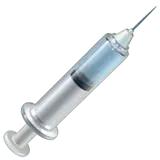Whiteflies


CLASSIFICATION
Animalia, Insecta, Hemiptera, Sternorrhyncha
ABOUT
Whiteflies are small pests often found in thick crowds on the underside of leaves. Whiteflies use their piercing mouthparts to suck sap from plants and produce honeydew, which can be covered in mold. The infestation leads to yellowing of the leaves, stunted growth, wilting, and dropping of the leaves.
How to treat?
 Biological
BiologicalRemove pests mechanically. Rub the pests off, or remove infested parts or use a strong stream of water to remove the insect.
Apply ecological products for plant protection (e.g. soap sprays, neem oil, sticky cards).
Introduce natural enemies - predators, parasites, or diseases (e.g. lady beetles, lacewings, dragonflies).
Isolate the infested plant immediately to avoid the infestation from spreading.
 Chemical
ChemicalIf necessary, apply insecticide containing clothianidin (GHS07: Harmful, GHS09: Environmental hazard).
If necessary, apply insecticide containing imidacloprid (GHS07: Harmful, GHS08: Health hazard).
 Disease prevention
Disease preventionEncourage the presence of natural enemies (e.g. lady beetles, lacewings, parasitic wasps).
Inspect new plants for signs of an infestation. Inspect the underside of leaves and stem joints.
Choose suitable neighboring plants. Some plants naturally repel whiteflies (e.g. nasturtiums, marigold).